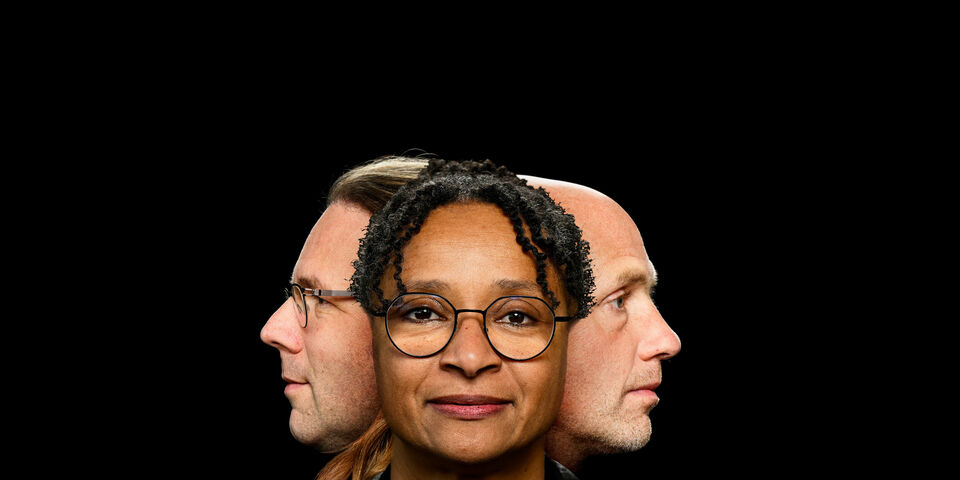K3 | Nurturing talent for the future: a century-long vision
Growth is a universal desire, sought by individuals and organizations to fulfill their ambitions. My student son is in the middle of the process, my employer senses a compelling push from the industry to evolve and expand. We, as TU/e, find ourselves at a crossroads, whether we want it or not. We must take swift action now to stay ahead of the game.
The other day, I was just chilling in the living room while my oldest son and a friend (both in med school) were discussing a hypothetical situation. They were debating how a caregiver, not on duty, should respond to a colleague's non-life-threatening medical emergency that requires immediate help. As they got more into it, it was clear they had different views. I couldn't help but listen in as their conversation got more intense. Then my mind went back in time to this 11 year old boy starting at the “Big school”, who for the first time got serious math homework. He sat on the floor surrounded by books and paper and looked at me with frustration and despair in his eyes and said: ‘’Mom I am already busy for 15 minutes and I am not yet done”! I snapped out of my thoughts and realized how much he's grown since and how calm and mature he approaches things. This is when I realized the tremendous formative effect of his university education. I felt grateful for the investment the university and society has made in him and how it’s shaping him to contribute to his profession and back to society.
Growth is a universal desire, sought by individuals and organizations to fulfill their ambitions. At TU/e, along with numerous other regional organizations, we sense a compelling push from the industry to evolve and expand in the foreseeable future. There are currently so many drivers for change at play, that it is justified to say that these times are chaotic. The following wise words of Petyr Baelish (Game of Thrones) can give us hope: “Chaos isn’t a pit. Chaos is a ladder”. It’s all about interpreting signals of society to make decisions today that will have a positive impact for decades to come. We, as TU/e, find ourselves at a crossroads, whether we want it or not. We must take swift action now to stay ahead of the game.
The stories of FujiFilm and Kodak are illustrative examples of transformation amidst the digital revolution. In the early 1900s, both companies were big in old-school film-based photography, but when digital cameras came along, they handled change very differently. Fujifilm's proactive approach to develop in-house expertise and to diversifying into new sectors like digital imaging and cosmetics, enabled their survival. Meanwhile, Kodak stuck to its brand and tried partnering up, but this didn't work out because they didn't have the in-house expertise needed to support change. FujiFilm survived because they had in-house expertise, which enabled them to adapt in the face of rapid tech changes.
In this ever-changing world, one constant remains for us as TU/e: the need for well-trained and inquisative young minds to propel us forward. Our educational systems play a pivotal role in shaping the workforce of tomorrow. The personal interactions between students and educators create a fertile ground for growth; a place where not only knowledge but also the unwritten tricks of the trade are passed down. My son absorbed not only facts and theories but also the practical wisdom that comes from seasoned professionals.
As TU/e, we must shape our growth with a first-time-right approach. In this growth process, personal interaction between educators and students needs to remain a crucial part of our approach. I believe that any format, in which this aspect is firmly anchored will continue to write history. Looking ahead 100 years from now, I envision a society that regards the TU/e with admiration as it also weathered the storms of change, just as FujiFilm did.
Monique Bruining is Managing Director ICMS. The views expressed in this column are her own.


Discussion